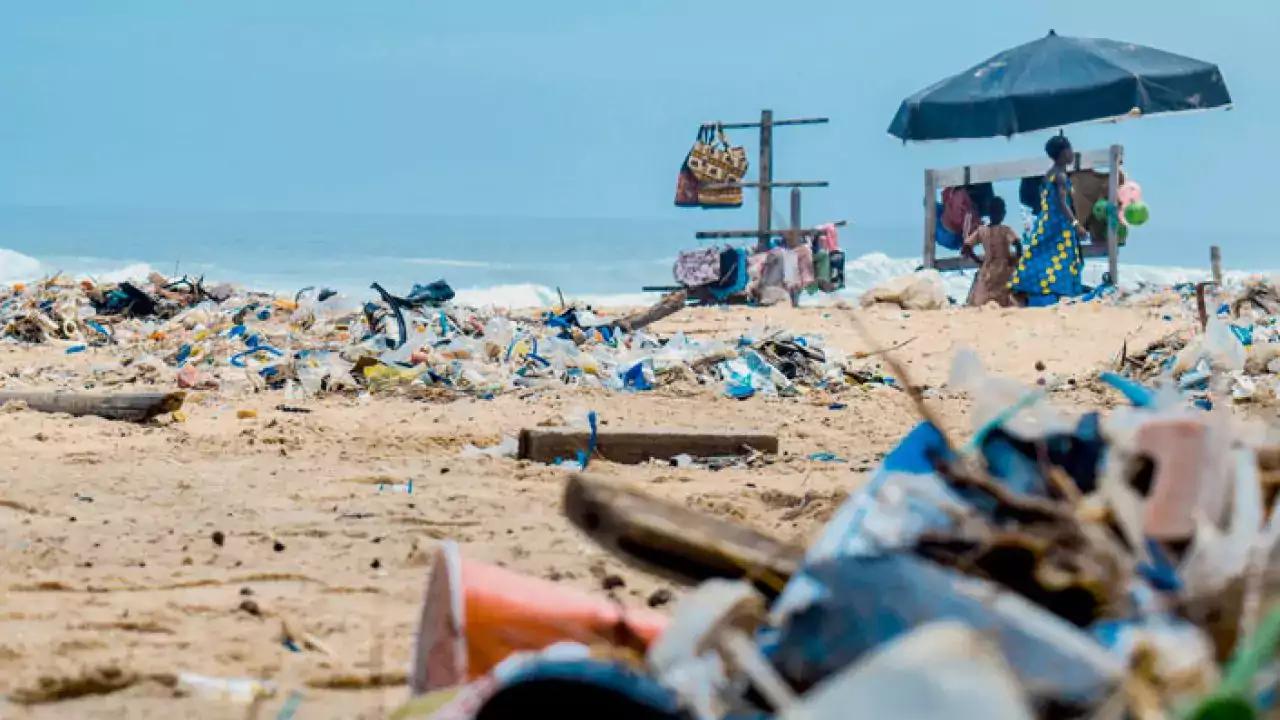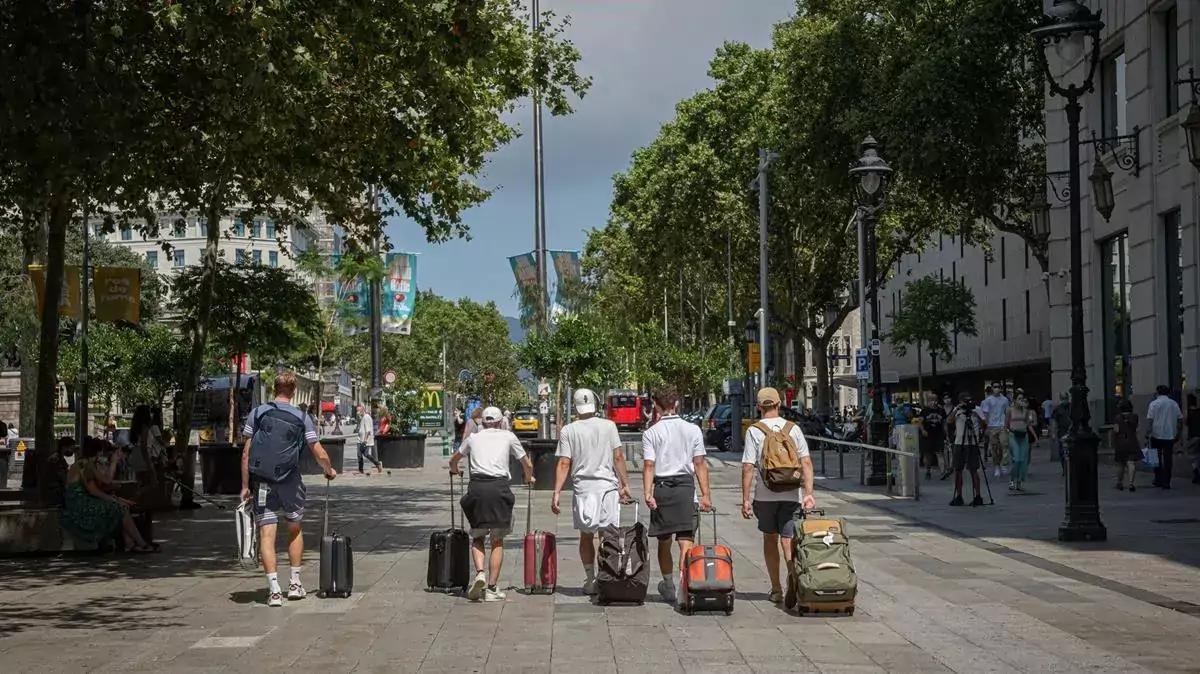
Tourism is one of the most important industries worldwide. It is an activity thatinvolves the movement of people to places outside their usual place of residence, whether for pleasure, business or any other reason.
Every year millions of people travel to destinations around the world to experience new cultures, try new foods and enjoy the natural wonders our planet has to offer.
This industry is constantly growing and expanding around the planet with a wide range of services and products that include transportation, accommodation, food and beverages, leisure and entertainment activities, shopping, among others.
In addition to providing economic opportunities for local communities, tourism can also advance cultural understanding and international cooperation, and can have a positive impact in sustainable development.
However, tourism can also have negative effects on the environment, culture and local economy, which requires proper and sustainable management to maximize its benefits and minimize its negative impacts.
What are the negative effects of tourism?
Environmental impact
The construction of tourism infrastructure such as hotels, restaurants and tourist attractions can have a negative impact on the natural landscape and local fauna. In addition, the increase in tourism can contribute to the degradation of natural ecosystems, air, water and soil pollution, as well as erosion and loss of biodiversity.
But the environmental impact of tourism is not limited to the construction of tourism infrastructure. It also includes the increased use of natural resources such as water and energy, the production of large amounts of garbage and waste, the emission of greenhouse gases and the disturbance of natural ecosystems.
In many tourist destinations, the demand for water can exceed the supply available, which can lead to the overexploitation of water resources and the decrease of groundwater aquifers. In addition, the increase in tourism can increase the amount of waste generated at the destination, which can lead to the accumulation of garbage and pollution in sensitive areas.
The emission of greenhouse gases is also a major problem related to tourism. Transportation is one of the main contributors to greenhouse gas emissions in the tourism industry. Airplane and car travel can emit large amounts of carbon dioxide and other gases that contribute to climate change.

Labor exploitation
Exploitation of labor in the tourism industry can be a serious problem, especially in countries where labor laws are weak or inconsistently enforced.
Workers in the tourism industry, especially those in low-paid jobs, are oftenexploited through the imposition of long working hours, low wages and poor working conditions, such as Lack of security and protection measures in the workplace.
In addition to labor exploitation, tourism can also lead to the exploitation of women and children. Human trafficking for the purpose of exploitation is a significant problem in many tourist destinations around the world.
Tourists may unknowingly contribute to exploitation by using the services of sex workers, fueling demand for this type of illegal activity.
Sex workers are often victims of human trafficking, who are tricked or forced to work in the industry without their consent and in dangerous and inhumane conditions. It is important that tourists are aware of these issues and support initiatives to prevent exploitation and protect workers in the tourism industry.

Economic dependence
If a community relies heavily on tourism as a source of income, it is vulnerable to fluctuations in the tourism market, which can be caused by factors such as natural disasters, political or economic crises, and changes in preferences of the tourists.
When tourism demand decreases, the community may experience a decrease in income and a loss of jobs, which can seriously affect the quality of life of its inhabitants.
In addition, reliance on tourism can cause host communities to focus on meeting the demands of tourists rather than on developing other industries.
This can limit economic opportunities for these communities and limit their growth in the long term. Therefore, it is important that host communities diversify their sources of income to reduce their dependence on tourism and increase their economic resilience in the future.

Loss of cultural identity
In many cases, tourism can drive the commercialization of local cultures, which in turn can lead to the standardization and simplification of culture. This can lead to the creation of cultural stereotypes and the trivialization of local customs and traditions, which in turn can undermine the integrity and authenticity of local culture.
In addition, tourism promotion often focuses on cultures that are perceived as "exotic" or "different", which can lead to the selection and promotion of certain aspects of local culture to the detriment of of others. This can cause the loss of certain cultural practices and traditions that do not fit the image promoted by tourism.
For this reason, the excessive promotion of tourism can lead to the loss of cultural diversity and its homogenization, which in turn can harm the integrity and authenticity of local cultures.

Infrastructure overload
The increase in tourism can cause an overload on local infrastructure, including roads, public services and natural resources, such as water and energy.
When a large number of tourists visit an area, local resources can be overwhelmed, as they were not designed to handle a large influx of people.
For example, wastewater treatment systems may not be equipped to handle large amounts of effluent, which can lead to contamination of nearby rivers and lakes.
In addition, the local transport infrastructure, such as roads and bridges, can be overwhelmed by the additional traffic, leading to long traffic jams and congestion. The overload on public services, such as garbage and sewage, can also have a negative impact on the quality of life of local residents.

How can we counteract the negative effects of tourism?
- Opt for sustainable tourism: One way to mitigate the negative effects of tourism is to opt for sustainable tourism options. This means supporting local businesses that operate responsibly and take environmental and social impact into account. In addition, you can look for options that promote the conservation of nature and local culture.
- Reduce your carbon footprint: Tourism can have a huge impact on the environment due to carbon emissions. One way to mitigate this impact is to reduce your own carbon footprint. For example, you can choose to travel by public transport or bicycle instead of by car, or choose accommodation options that use renewable energy.
- Support the local community: A way to mitigate the negative effects of tourism is to support the local community. This involves purchasing products and services from local businesses, eating at local restaurants, and using local tour guides. Also, you can learn about the local culture and respect their customs and traditions.
- Reduce your plastic consumption : Tourism can contribute to environmental pollution, especially in terms of plastic. One way to mitigate this impact is to reduce your own plastic consumption. For example, you can bring a reusable water bottle, bring your own shopping bag, and avoid using plastic straws.
- Be a Conscious Traveler: Finally, one way to mitigate the negative effects of tourism is to be a conscious traveler. This involves being aware of the impact that your actions may have on the environment and the local community. For example, you can respect environmental regulations, reduce your energy and water consumption, and be respectful of people and local culture.









comments